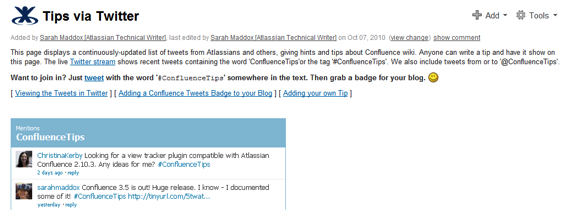Microsoft employees can use an “internal YouTube” platform to create podcasts, listen to other podcasts that are created by fellow employees, and even rate and comment on the digital files using Web 2.0 technology.
Three years ago, Microsoft launched Academy Mobile, which is now hosting thousands of employee-generated podcasts. The idea behind the platform is that any one of Microsoft’s 90,000 employees can share expertise with each other. Paolo Tosolini, a social video consultant who launched the initiative for Microsoft, was one of the speakers at the recent WritersUA conference.
Here are some of the highlights:
Employees generate the content. Any Microsoft employee can share expertise on a given subject and upload it to the secure platform. Employees have created 19,000 podcasts to date, there are 800 new uploads each month, and 90,000 downloads on a monthly basis.
Podcasting tools are supplied. Microsoft provides each employee with all the audio and video tools needed for free as long as the employee agrees to create three podcasts per month.
Rewards program. Each employee earns “points” for each podcast published and additional points when another employee views it. Points can be used to redeem gifts.
Platform takes advantage of Web 2.0 technologies. Academy Mobile is built on Microsoft SharePoint but the user interface looks distinct from Microsoft’s other corporate sites. Paolo referred to the site as an “internal YouTube” site. Employees can take advantage of Really Simple Syndication (RSS), comments, and peer rating of each podcast.
Employees can download the podcasts to a variety of devices. Being Microsoft, you might expect that employees would only be able to download content to devices like Microsoft’s own Zune MP3 player. But Paolo noted that Academy Mobile convinced management that podcasts should be compatible with all sorts of devices—including iPhones—so that employees can easily listen to the content.
Microsoft’s Academy Mobile appears to be one innovative way that organizations can harness the expertise of their people. If I was driving to work, I’d definitely consider listening to a podcast and taking advantage of Academy Mobile.



 I have worked as a
I have worked as a